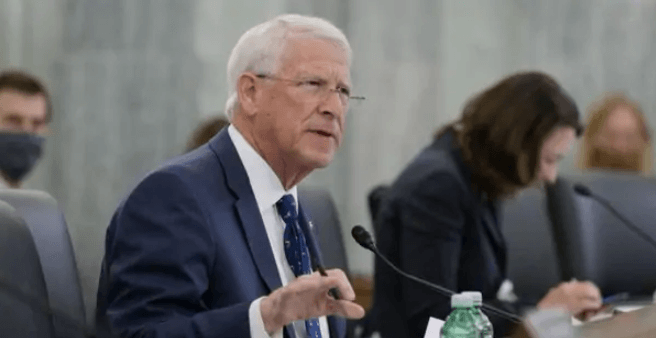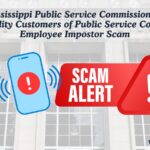Wicker: Confronts scam artists
By U.S. Sen. Roger Wicker (R-Miss.)
Note: The following article is the weekly “Wicker Report” of U.S. Sen. Roger Wicker (R-Miss.) and is provided by the Senator’s office.
Learning Three “Tells” Can Keep Mississippians Safe from Fraud
This year, authorities have reported an alarming rise in fraud cases. I recently spoke with the son of one of the victims. He recounted how scammers pressured his elderly mother to drain her deceased husband’s life savings, leaving her with little retirement money. Her story is heartbreaking, infuriating, and – unfortunately – all too common. By the time these reports make it to law enforcement, the damage has often already been done, but I am determined to do all I can to keep another family from experiencing this loss.
How to Know You Are Being Scammed
I stand ready to help Mississippians harmed by these criminals. The best defense against their schemes is to understand the tactics they use.
Fraudsters target Americans of all ages and income levels, often accusing them of doing something wrong. Then, they manipulate peoples’ desire to make things right. Scammers sound convincing. Sometimes, they falsely use the names of real government employees listed on official websites. The person calling may even pretend to put their manager on the phone to appear more believable.
Though they seem genuine, they make statements or demands no government employee would. Mississippians can learn three of these most common “tells” to avoid falling prey to these swindlers.
First, scammers often try to contact targets using unofficial channels. No federal employee will ever message you on social media, and they will never send a photograph of their badge to force you to pay them money.
Second, these criminals pressure people to act immediately to solve a problem or secure a prize. No federal agent will threaten you with arrest or legal action to persuade you to pay quickly. They will never suspend your Social Security Number, demand that you share personal information in the moment, or threaten to seize your bank account.
Third, they will often ask you to pay in unusual ways – with gift cards, wire transfers, digital currencies, prepaid cards, or cash sent by mail. No legitimate government employee would ask this.
For more on these “tells,” read the Social Security Administration’s guide at ssa.gov/scam.
How to Respond to a Suspicious Message
If you receive communication containing one of these urgent demands, the first thing to do is pause. Scammers want you to panic, but government officials will never require you to do anything right away.
If you are on the phone, hang up. If you received an email, do not click any links or attachments. Never send any money or personal information until you have talked with a trusted friend or family member. Together, you can determine whether the message is authentic.
It can be embarrassing to be targeted, but you are not alone. Given the rise in fraud cases, it is possible your friends and family have received suspicious messages, too. Remember that being scammed is not your fault. Only the criminals are to blame. Spreading the word protects future victims and weakens the scamming industry.
My staff and I do all we can to work with law enforcement in helping constituents who have been taken advantage of by these criminals. Reporting these crimes helps foil future fraud plots. The Mississippi Attorney General recently established a Special Victims Unit. The office’s work includes investigations into the scammers who often target the elderly. But the best safeguard is learning the signs and sharing them with your loved ones.




